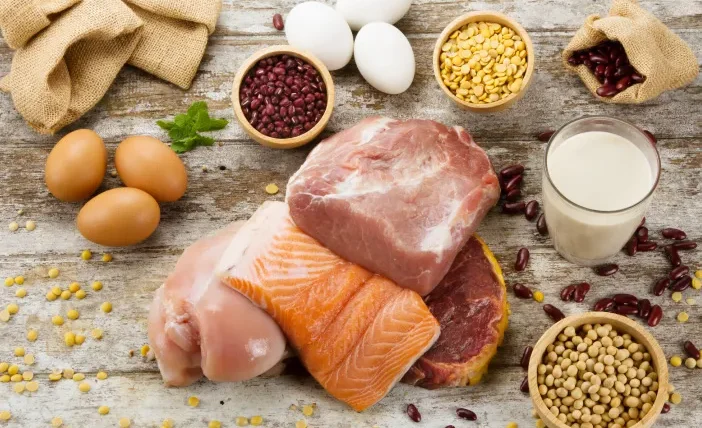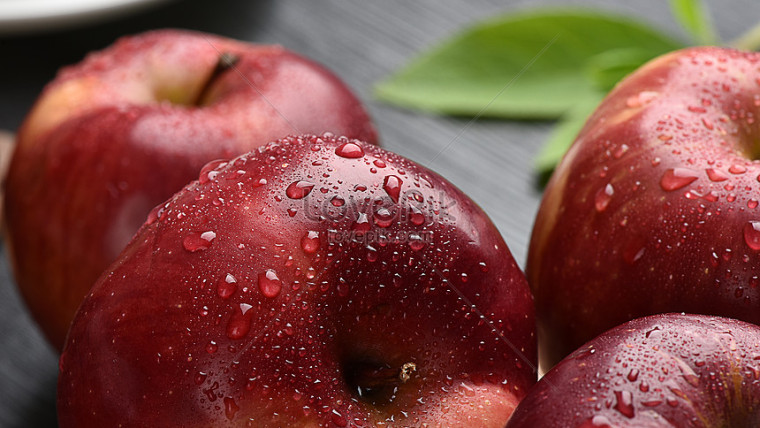What Is Healthy Food ? The body needs a wholesome diet to maintain organ performance and ensure organ function.
Healthy foods usually have a number of nutrients. Healthy food must be clean, well-balanced, and nutritious (4 healthy, 5 ideal). Foods containing carbohydrates, proteins, fats, and vitamins make up a balanced, healthy diet.
The body can get the nutrients it needs from a variety of healthful foods, not just one kind. In reality, eating a variety of foods is advised to assist the body’s growth and development. Different food kinds can give various nutrients, enabling the body to get the nutrients it needs.

Options for Healthy Food
Minerals and vitamins are only two examples of the many nutrients that healthy cuisine should be able to supply at sufficient levels. Here are some examples of foods that you can choose from that are healthy and can be eaten every day:
Vegetables
The first healthy food is green veggies since they are full of nutrients. The following green vegetables are beneficial to your health when consumed:
Broccoli
Phytonutrients, calcium, potassium, folate, and fiber are all abundant in this one vegetable. This material contains a chemical that lowers the risk of developing diabetes, heart disease, and certain types of cancer. Beta-carotene, antioxidants, and vitamin C are also present in broccoli.
100 grams of broccoli, or one serving, contains more than 150 percent of the daily recommended amount of vitamin C.
Kale
The leaves of kale contain a variety of nutrients. The United States Department of Medicine (USDA) reports that kale includes substantial amounts of vitamin K, which is 817 micrograms, or 778 percent of the daily recommended consumption. Vitamin C is one of the components that kale contains.
Leafy Green Vegetables
Numerous dark green leafy vegetables, including spinach or cabbage, have been found in studies to greatly reduce a person’s chance of acquiring type 2 diabetes. Antioxidants are very abundant in spinach, especially when it is boiled. Vitamins A, B6, C, E, and K are all present in spinach in good amounts.
Fruits
Due to their high nutritional content, fruits are also crucial to consume. Fruits with a high nutritional value include:
- Apples, as they are high in antioxidants, fiber, and vitamin C.
- Vitamin C-rich oranges are a good example.
- Avocados, which are rich in potassium, vitamin C, and good fats.
- As a potassium source, bananas.
- berries, including strawberries and blueberries. It is low in calories and high in antioxidants, fiber, and other nutrients. Eggs with meat
- Comparatively speaking to other meats, lean beef is a good source of both protein and iron. Additionally, eggs are advantageous since they provide a full source of necessary and non-essential amino acids, as well as vitamins, minerals, and unsaturated fats.
Grains and Nuts
This food category consists of a sort of nutritious, crunchy cuisine that is packed with nutrients and several essential elements for the body, such as magnesium and vitamin E. Especially for vegans, nuts are a good source of vegetable protein.
Additional Seafood and Fish
Fish and other seafood are excellent suppliers of iodine and omega-3 fatty acids. According to studies, persons who regularly consume marine fish have a lower risk of developing a number of ailments, including heart disease, and tend to live longer.
Milk
Minerals, animal protein, good fats, and vitamins are abundant in milk. Additionally, milk contains significant amounts of calcium. Additionally, milk is transformed into cheese and fermented into yogurt, which is healthy for digestion because it is high in good bacteria.
Healthy Food to Prevent Disease
Eating healthy foods benefits bodily processes and lowers the risk of certain diseases, including:
Salmon
The group of nutritious foods that are suitable for ingestion includes salmon and other fish species that contain omega-3 fatty acids. This kind of diet can lower blood pressure and the risk of heart issues (arrhythmias) through promoting heart health. Additionally, it can decrease triglycerides and stop inflammation.
Oatmeal
A healthy heart benefits from oatmeal. Due to its high fiber content, this kind of meal can lower cholesterol levels. Oatmeal can help diabetics keep their blood sugar levels stable, making it a crucial food. Due to their fiber content, these foods may be heart-healthy by decreasing bad cholesterol (LDL).
Seeds
Consuming whole grains as your main source of carbs, such wheat, brown rice, or corn, can lower your chance of developing heart disease, diabetes, some types of cancer, obesity, and other health issues. because these grains provide protein, anti-oxidants, B vitamins, minerals (iron, magnesium, and zinc), and fiber.
Green vegetable
Green vegetables are rich in fiber, polyphenols, carotenoids, folate, magnesium, potassium, and calcium. Carotenoids are pigments that are packed with antioxidants and can be found in colorful fruits and vegetables. Carotenoids are beneficial to the heart since they may be associated with a lower risk of heart attack.
Orange
Vitamin C, carbohydrates, potassium, folate, calcium, thiamin (vitamin B1), niacin (vitamin B3), pyridoxine, and a number of other vitamins that are excellent for heart health can all be found in one orange. Citrus fruit constituents also have the ability to lower blood cholesterol levels and raise the risk of good cholesterol.








One Reply to Healthy Food
Can I Eat Teriyaki Sauce When Pregnant?
Can You Eat Crab While Pregnant?
Can Pregnant Women Eat Shrimp? Danger or not?
Implantation Bleeding vs. Period: How to Tell the Difference
Chronic Energy Deficiency (CED) in Pregnant Women
Are taking hot baths During Pregnancy safe or harmful?
5 Easy Ways to Overcome Pain During Pregnancy
Implantation Bleeding vs. Period: How to Tell the Difference